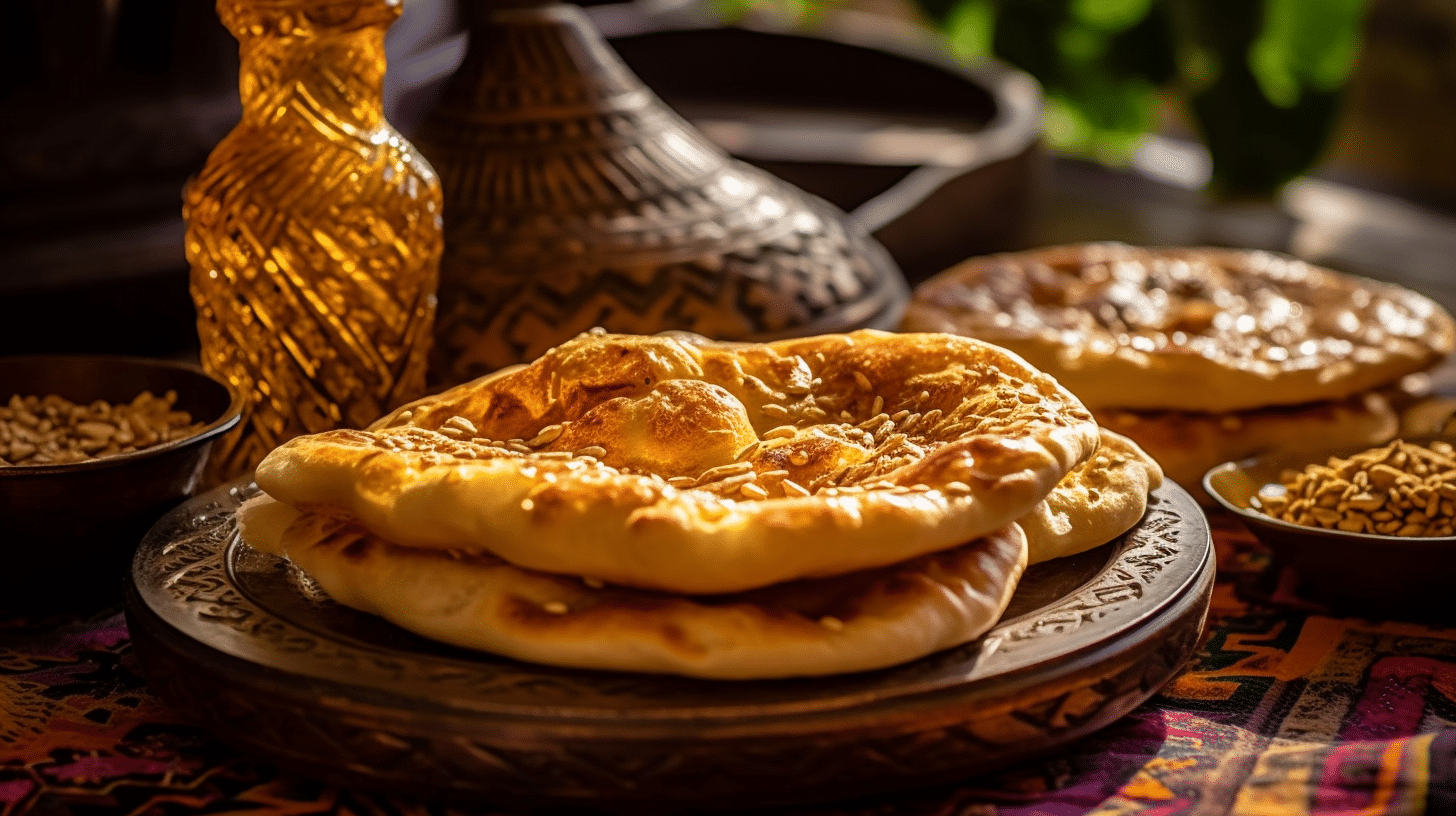Why Mediterranean Food Is the Ultimate Blend of Nutrition and Deliciousness
Mediterranean cuisine uniquely manufactures nourishment and taste, offering a varied variety of active ingredients that accommodate both the taste buds and the body. Defined by its reliance on fresh veggies, entire grains, healthy and balanced fats, and lean proteins, this culinary tradition not only thrills the senses yet likewise adds dramatically to wellness. As we check out the crucial elements that define this food, the interplay of taste and health and wellness comes to be obvious, welcoming additional exam of exactly how these meals can improve our daily lives and cooking experiences. What makes Mediterranean food truly outstanding may surprise you.
Trick Components of Mediterranean Cuisine
While the Mediterranean diet is celebrated for its health advantages, it is the key ingredients that define its abundant culinary landscape. Central to this cuisine are fresh vegetables and fruits, which are diverse and abundant, using necessary nutrients and lively flavors. Staples like tomatoes, peppers, eggplants, and leafy eco-friendlies are frequently included, mirroring the area's agricultural bounty.
Olive oil stands apart as a hallmark component, treasured for its taste and healthy monounsaturated fats. It acts as the key fat resource, improving both taste and nutritional value in meals. Legumes, such as chickpeas and lentils, offer plant-based healthy protein and fiber, adding to the diet regimen's robustness.
In addition, whole grains, consisting of farro and quinoa, are integral to Mediterranean meals, offering a resource of complicated carbs. Nuts and seeds additionally play a considerable function, providing healthy and balanced fats and a rewarding crisis.
Wellness Benefits of Mediterranean Diet Regimen
The Mediterranean diet regimen is not only renowned for its rich flavors yet additionally for the many wellness benefits it provides. This dietary pattern, defined by high usage of fruits, veggies, whole grains, nuts, and healthy fats, especially olive oil, has actually been linked to numerous positive health outcomes.
Research suggests that adhering to the Mediterranean diet regimen can lower the threat of chronic diseases such as heart diabetes mellitus, disease, and stroke. The abundance of anti-oxidants and anti-inflammatory substances located in this diet promotes cardio health, reducing high blood pressure and improving cholesterol levels. Furthermore, the diet plan's emphasis on healthy fats sustains healthy and balanced mind function and may lower the threat of neurodegenerative diseases.
Furthermore, the Mediterranean diet has actually been related to enhanced weight monitoring and lower rates of weight problems. The concentrate on whole, minimally processed foods motivates satiation and nutrient thickness, making it easier to preserve a healthy weight.
Flavor Profiles That Pleasure
At the heart of Mediterranean cuisine lies a dynamic tapestry of flavors that captivates the palate and showcases the region's varied culinary heritage. This food is characterized by a beautiful equilibrium of fresh, wholesome ingredients, each adding to a symphony of preferences that range from full-flavored to tangy, and pleasant to natural.
The essential flavor accounts are formed by vital components such as olive oil, garlic, herbs, and seasonings. Olive oil provides a rich, fruity base, while garlic adds a robust depth to meals. Fresh natural herbs like basil, parsley, and oregano jazz up meals with their aromatic qualities, improving the total sensory experience.
Additionally, the use of citrus fruits such as oranges and lemons presents a revitalizing acidity, brightening tastes and including complexity. The incorporation of seasonal vegetables-- such as tomatoes, eggplants, and bell peppers-- additional enhances the palette with all-natural sweet taste and umami.
Cheeses, like feta and pecorino, add velvety textures and saltiness, rounding out dishes perfectly. This harmonious interaction of flavors not only pleases the taste but also reflects the Mediterranean principles of celebrating fresh, top quality ingredients in every dish.

Cultural Importance of Mediterranean Food
Mediterranean food is not just a collection of recipes; it symbolizes the cultural heritage and practices of the regions surrounding the Mediterranean Sea (moroccan restaurant las vegas). This cuisine mirrors the varied histories, farming practices, and social custom-mades of nations such as Greece, Italy, Spain, and Morocco. Each recipe narrates, typically rooted in regional ingredients and ancient methods, showcasing a deep link to the land and its individuals
The public aspect of Mediterranean eating is particularly significant, as dishes are usually delighted in with friends and family, promoting a feeling of area and togetherness. Events and events frequently rotate around food, where standard dishes are shared and prepared, strengthening social identification.
Additionally, Mediterranean food stresses the relevance of fresh, seasonal components, which not just sustains neighborhood economic a fantastic read situations but additionally promotes lasting practices. This viewpoint is deeply intertwined with the Mediterranean way of living, which values equilibrium, small amounts, and enjoyment of life.
In essence, Mediterranean food offers as a living testimony to the rich tapestry of background, society, and social interaction, making it a lot more than simple nourishment; it is a party of life itself.
Easy Mediterranean Recipes to Try
Discovering the vivid flavors of Mediterranean food can be the original source both enjoyable and accessible, also for amateur chefs. With its focus on fresh components, strong seasonings, and basic food preparation techniques, Mediterranean dishes can quickly be included right into your culinary collection.
One great dish to try is the traditional Greek salad. Integrate diced cucumbers, ripe tomatoes, red onions, Kalamata olives, and feta cheese, dressed with olive oil, lemon juice, and oregano. This recipe is rejuvenating and jam-packed with nutrients.
One more easy choice is the Mediterranean quinoa bowl. Prepare quinoa and blend it with cherry tomatoes, bell peppers, cucumbers, and a spray of parsley. Drizzle with a straightforward lemon-olive oil dressing for a wholesome meal.
For a tasty side, take into consideration roasted veggies. Toss zucchini, bell peppers, and eggplant in olive oil, salt, and natural herbs de Provence, after that roast until tender. This recipe boosts any major course while providing a colorful, nutrient-rich enhancement to your table.
Blend chickpeas, tahini, garlic, lemon juice, and olive oil until smooth. These dishes are not just easy to prepare but likewise reflect the Mediterranean commitment to health and flavor.

Conclusion
In final thought, the Mediterranean diet regimen exemplifies a harmonious assimilation of nutrition and taste, defined by its dependence on fresh, entire components. As individuals look for healthier nutritional options, Mediterranean food provides a delectable option that advertises overall well-being while commemorating culinary customs.
Mediterranean cuisine distinctively synthesizes nourishment and flavor, supplying a diverse range of active ingredients that cater to both the body and the taste.While the Mediterranean diet regimen is next commemorated for its health and wellness benefits, it is the essential active ingredients that define its rich culinary landscape.Mediterranean food is not just a collection of dishes; it embodies the social heritage and practices of the regions bordering the Mediterranean Sea. moroccan restaurant las vegas. These dishes are not only simple to prepare however also show the Mediterranean dedication to health and wellness and flavor
In conclusion, the Mediterranean diet exhibits a harmonious integration of nourishment and flavor, defined by its dependence on fresh, whole active ingredients.